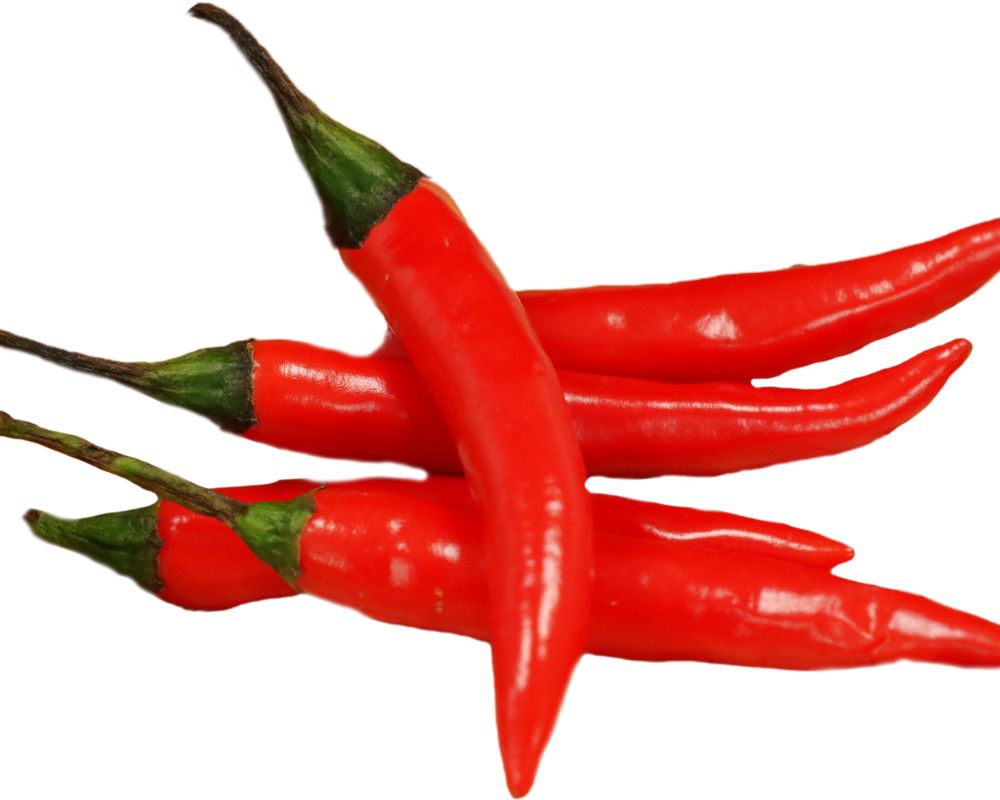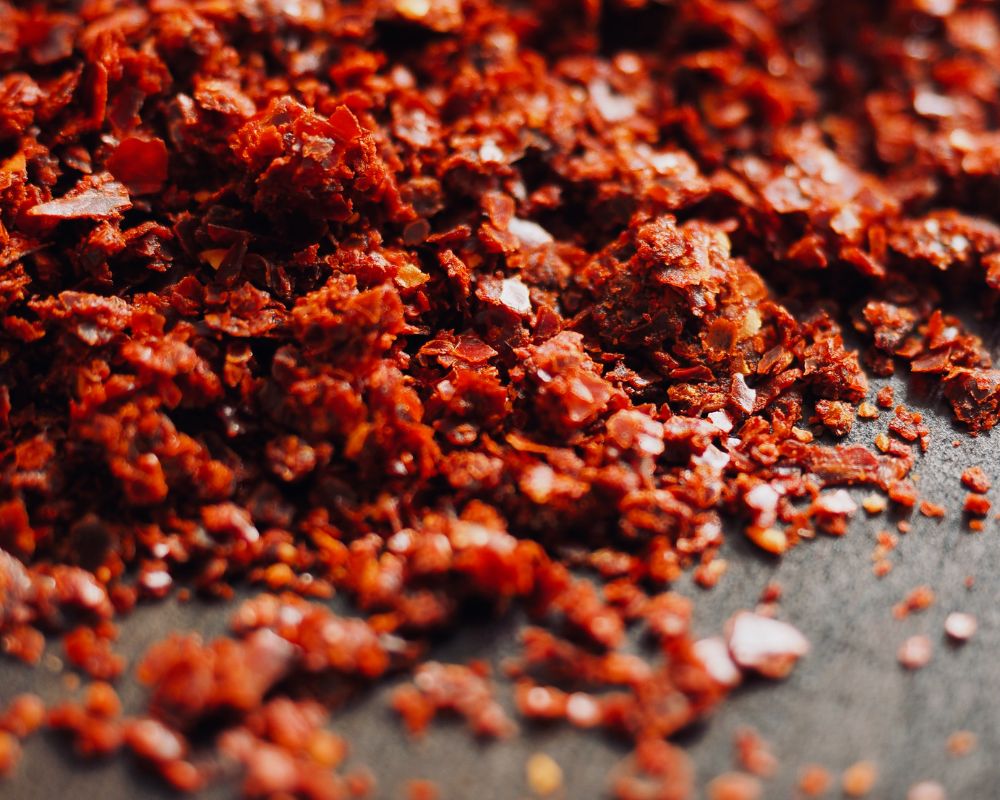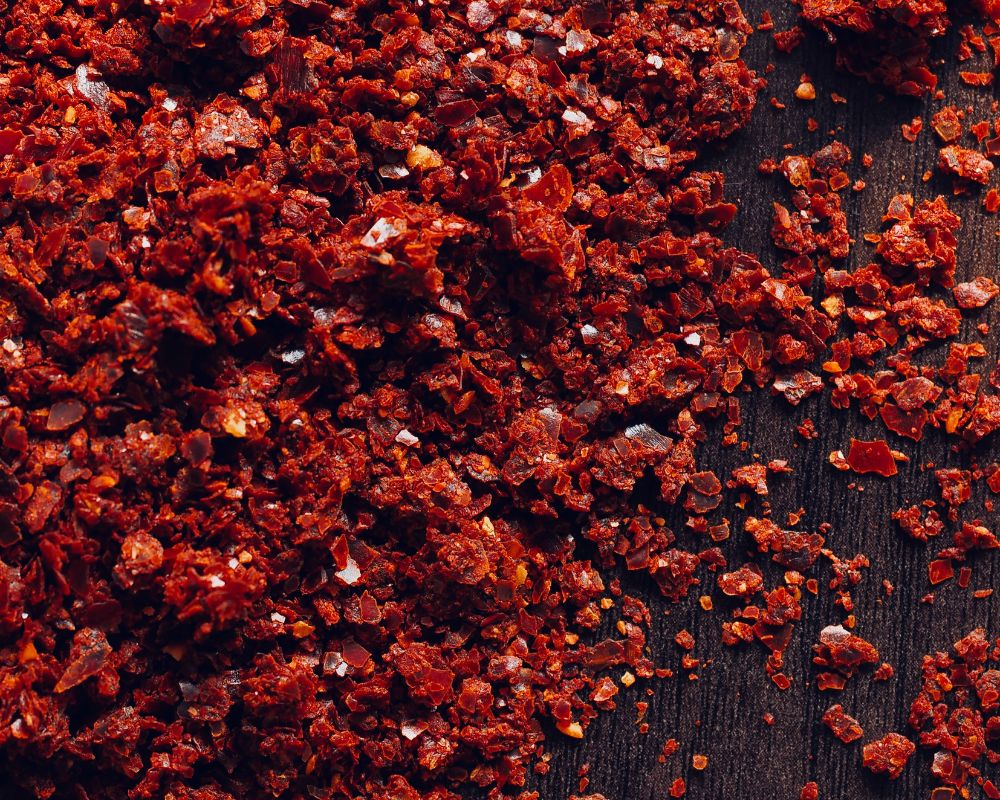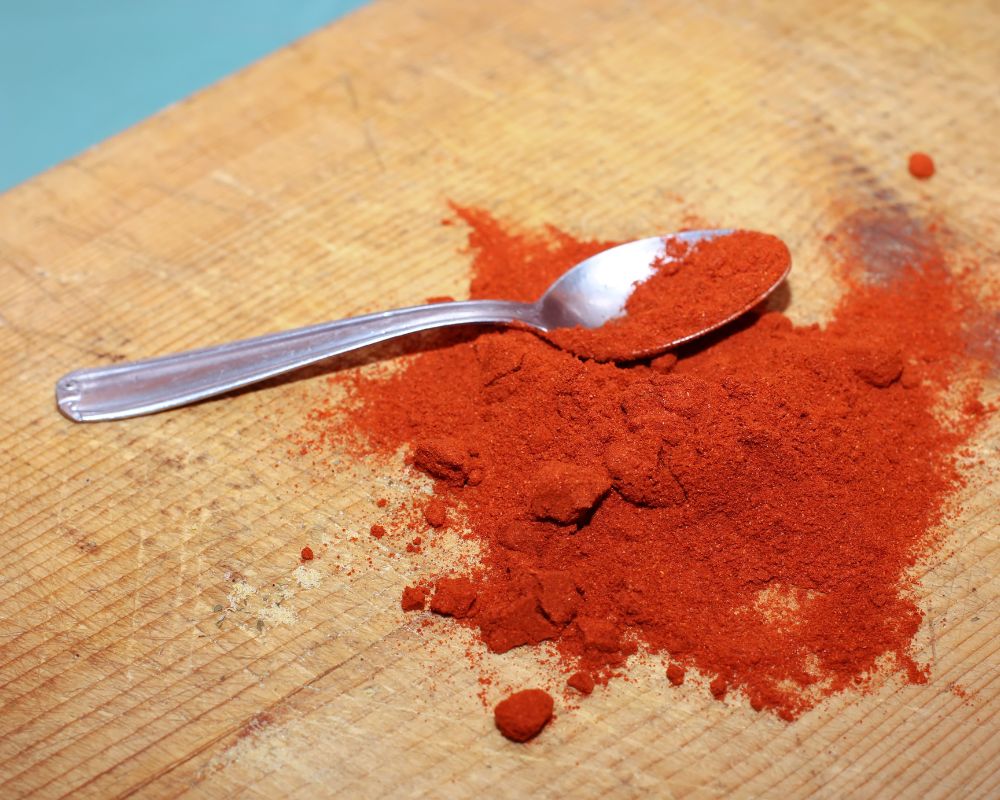A critical part of Korean food, the Korean red pepper offers a great mix of spiciness and sweetness. Unlike many of its pepper relatives, it also gives a fruity flavor. In the US, it’s available as a fiery red powder or flakes (gochugaru) common in kimchi or fermented cabbage.
Table of Contents
What is Korean red pepper?

Many Asian cuisines have a particular affinity for spicy ingredients. In Korea, the Korean red pepper (gochu) is an essential ingredient in cooking. It adds just the right amount of heat and introduces a depth of flavor to a wide array of dishes.
Gochugaru is the local name for the powdered, sun-dried form of the said red pepper plant. Globally, it’s known by many names, including Korean red pepper powder, Koran red pepper flakes, and Korean chili flakes.
| Origin | Native to Korea |
| Appearance | This chili pepper is long and slender |
| Flavor profile | Generally milder in flavor compared with other chili peppers |
Origin
While many believe that Korean gochu came from Central America through the Japanese invasion, scientific evidence shows it’s a plant native to Korea. It’s believed to have grown there since a few billion years ago.
Botanically, it belongs to the Capsicum annuum species, including Hungarian paprika, Sichuan, Greek, and Italian pepper. In Korean cooking, it is used for kimchi, marinades for BBQ, soups, stews, and as a condiment.
Appearance
This chili pepper is long and slender. When unripe, this medium-sized pepper has a green color. It becomes a deeper green and then red as it continues to ripen. Its ground form is made by de-seeding the hot pepper and sun-drying it. The final powder or flake is coarse in texture and has a vibrant red color.
Flavor profile
Korean red pepper is generally milder in flavor compared with other chili peppers. They offer sweetness and fruity undertones to dishes and are also slightly smoky.
Though they have a generally moderate level of heat, the level of spiciness will still depend on where it’s sourced, the specific farming conditions, and if there are pepper seeds that end up in the final product.
Nutritional Benefits of Korean red pepper
Korean cuisine, like its Asian neighbors, uses many ingredients that also pack hefty nutritional benefits.
In general, chili peppers are good sources of fiber and vitamins and can help relieve pain and aid in weight loss. Gochugaru, in particular, is laden with vitamins E and A, which both have antioxidant properties. It’s also rich in iron (responsible for red blood cell production) and copper (essential in making energy, blood vessels, and connective tissues).
Experts also believe that gochujang (a chili paste made of gochugaru) can help address digestive issues and maintain a healthy gut.
How to use Korean red pepper?

Korean red chili peppers can be used fresh, as a powder, and as chili pepper flakes. Fresh peppers (also known as hong-gochu) are popular garnishes for side dishes and as an ingredient of fresh summer kimchi.
People widely use Korean chili flakes or fine powder to enhance the flavor of kimchi, soups, stews and marinades for meat, fish, and vegetables. You can mix it with other seasonings or make the Korean chili paste, gochujang (which also uses glutinous rice, fermented soybeans in powder form, salt, and barley malt powder).
If you have gochujang in your kitchen, you can also use it as a marinade for meat and veggies. Like gochugaru, you can use it to make a sauce for coating noodles and veggies and Korean rice cakes called tteokbokki.
Is Korean red pepper hot?
Korean gochugaru or Korean chili powder is moderately spicy with Scoville heat units ranging from 4,000 to 8,000 (1,000 to 1,500 when unripe). To put its spiciness in context, it’s about 7 times less spicy than Cayenne pepper, one of the most used hot peppers in North, Central, and South American cooking.
What is the difference between Korean red pepper and Cayenne?


Here’s a side-by-side comparison between Korean red pepper and cayenne.
| Korean Red Pepper | Cayenne | |
| Origin | Korea, a cultivar of Capsicum annuum | Cayenne in France Guinea, off the northeast coast of South America, also a cultivar of Capsicum annuum |
| Appearance | When unripe, it’s a long green and slender pepper. Gochugaru is the vibrant red ground/flake version | These are skinny, red-colored peppers. They will have a deep orange and reddish hue when ground into a fine powder |
| Flavor | Sweet, slightly smoky, fruity, and moderately spicy (4,000 to 8,000 SHU) | At 30,000 to 50,000 SHU, cayenne has a higher level of heat and also offers a citrusy flavor |
| Applications | Kimchi, an ingredient for gochujang (a Korean chili paste) | As a spicy marinade, an ingredient for pizza sauces, enchiladas, tacos, and fajitas |
| Shelf life | 2 years when stored in an airtight container in a cool and dark place | 2 to 4 years when stored in an airtight container in a cool and dark place |
| Form | Fresh, ground, flakes | Fresh, ground flakes |

